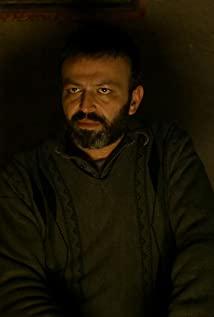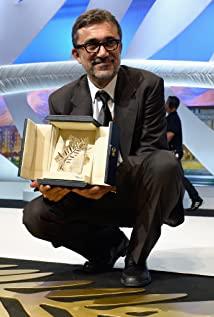Second Ceylon. Unlike "Once Upon a Time in Asia Minor", which brings about the blur of temperament and its profound mysterious charm brought by image domination, "Hibernation" seems to focus more on seeking a sense of balance between audio-visual and text. "Hibernation" begins with the "known", which gradually leads to an extended discussion of controllable moral issues. A lot of additions have been made to the popularity of the text and the dialogue, and the image level also maintains the same tone as before, but the stylization is different from "Once Upon a Time" and has the restraint and restraint of the camera language. Therefore, in terms of perception, the themes and arguments are much more clearly discernible. However, the presentation of local issues and the "unconsciousness" trapped in moral faults in the two films have very similar meanings, and they are both extremely sensitive, sensitive, and observable. "Once Upon a Time" uses the unknowable as a mysterious traction to ask questions. The way it can be perceived for a long time and the language is unclear, but the blank space reveals the introduction of the issue of the system, class, gender and morality. "Hibernation" starts with specific events but ends abruptly in the middle. (The boy's sudden fainting) With unfinished questions left over, the hero and heroine and the people around them are struggling to make a step-by-step debate between moral self-impression and forced self-examination. Privately, it is a major feature of Ceylon that it does not take events as the main axis and goes deep into the "deep" narrative style. It is not easy to activate all the interpretable possibilities of the outer axis of the event, making the thinking space of the characters inside and outside the play become multi-dimensional.
Returning to the film itself, Aiden, a former drama actor, wrote articles related to religion as a writer. Although he enjoyed it, he never looked at the problem from an observational perspective, but was full of his own moral superiority theory. The boy-smashing car incident sparked a discussion between siblings with an easily identifiable class issue. In the religious debate between the male protagonist and the younger sister, it can be seen that the two people's views of good and evil are both flawless and noble in their self-confessed moral values, and their self-logic logic has become so strong that there is no room for paranoia. The failure to convince the other party may have been expected by the two, but the sarcastic words of each other were not enough to make the two feel introspective. However, the important thing is that the battle of words here has made the audience understand that brothers and sisters in different classes have the same sense of moral superiority, and the unconsciousness of looking down attitude is hidden in everyone's consciousness, which is not easy to detect. Not easy to remove. This is also the main reason why people can't be brought in or teamed up for it, because there must be you and me among those who need to introspect. In the dispute with his wife, the male protagonist most bluntly pointed out the inadequacy of his actions, but his arrogance and disdain cannot make the audience pay for this "truth". In the debate between the male protagonist and the younger sister, the director's implied mockery of the male protagonist is different. Due to the further development of the relationship between the "husband and wife", the previous allusions now seem to be very critical. However, the cynicism and sarcasm in it did not substantially escalate and distinguish between the two disputes. This quarrel is more of an irrational verbal conflict than the sibling rivalry. The emotional exaggeration caused by the intensifying effect of the large dialogues and actors' performances is different from the situation that the previous rational confrontation could not bring. language. However, knowing that the discussion here is not in-depth, it is very easy to be swayed by the touch of the two's remarks. The rational level does not want to completely deny the truth of the male protagonist, and the emotional level hopes that the wife will leave the male protagonist after introspection, so as to stand in line for the false theory of "consciousness awakening" that I want to see. But my wife's choice didn't go as I wished. Instead, when I found out that I needed to reflect on myself, I voluntarily brought back the villain image of the male protagonist with a doubtful understanding and recognition.
The husband and wife's journey of self-examination did not end with a brief separation. The male protagonist still stuck to his own opinions in the debate with others, and naturally ended in fruitless. The heroine suffered a mental breakdown of unacceptable goodwill. (The father of the boy who smashed the car didn't accept the heroine's money and threw it into the fire.) It's just that at this time, both of them have deeply realized that the solid state of consciousness imprisoned by themselves is no longer unbreakable, but the changes that have been overturned may have been changed. He was incapable of doing anything because of the obstacles caused by human nature. The couples who look good and separated are no longer disturbed by the plight of others, but their self-examination consciousness is constrained by the status quo and is no longer able to turn the tide. Ceylon gradually elaborates the peculiar factors in human nature with three quarrels surrounding the male protagonist. Thinking about it carefully, the three quarrels have been expounding the different moral dilemmas originating from non-self from the perspective of neutral attitude. There is naturally no shortage of clichéd balances of "fifty big boards each" in moral controversies, but I agree with the choice of this balance, because it is not limited to revealing moral flaws that have certain inevitability, but invisibly will The "moral dilemma" that belongs to oneself is transformed into the "introspection dilemma" that requires self-discovery and is unknown to others. The speculative dimension is much more realistic and powerful than outright criticism and blatant irony. It is a question whether it is worthwhile to use 3 hours and 16 minutes to interpret a well-known human factor, but it is also interesting to see a little-known and uncharacteristic "dilemma graft" in the universal values. . At the very least, this not-so-original rhetoric is a slight provocation of the established ideology. As for whether or not to agree with the value orientation in the film, it is better to have different opinions.
View more about Winter Sleep reviews











